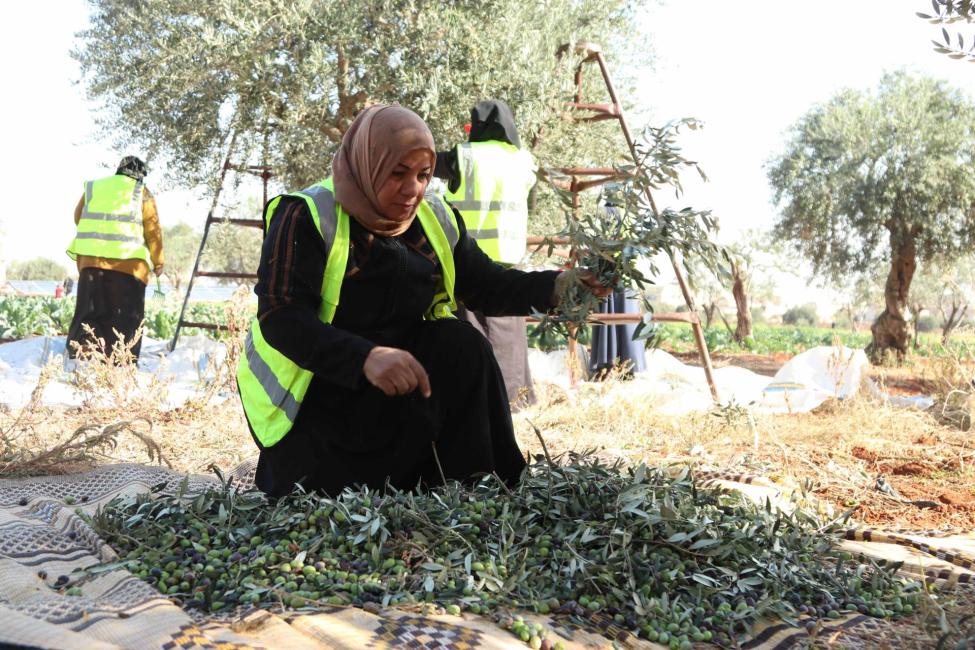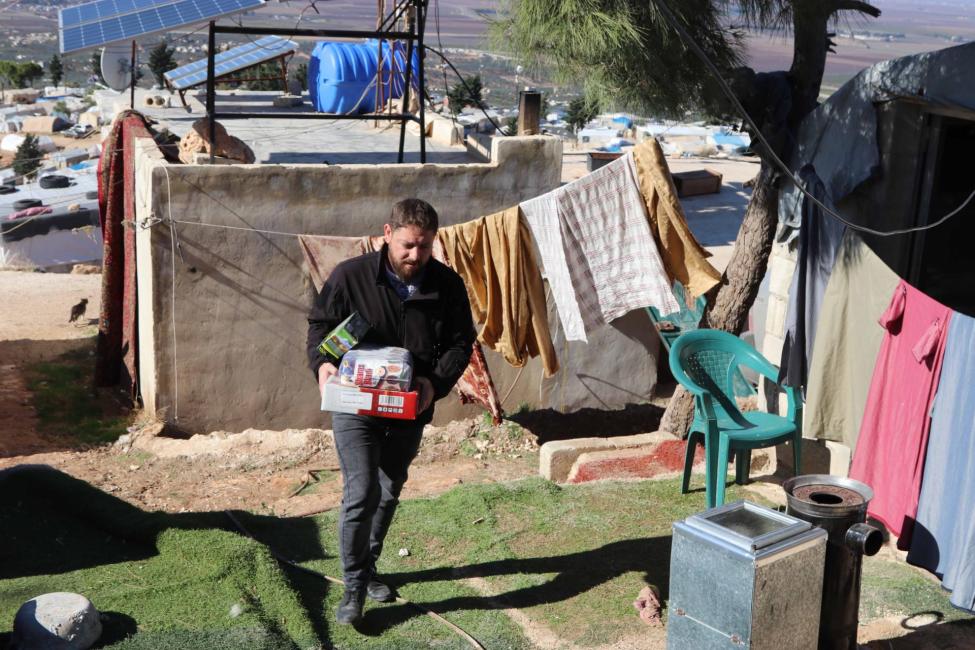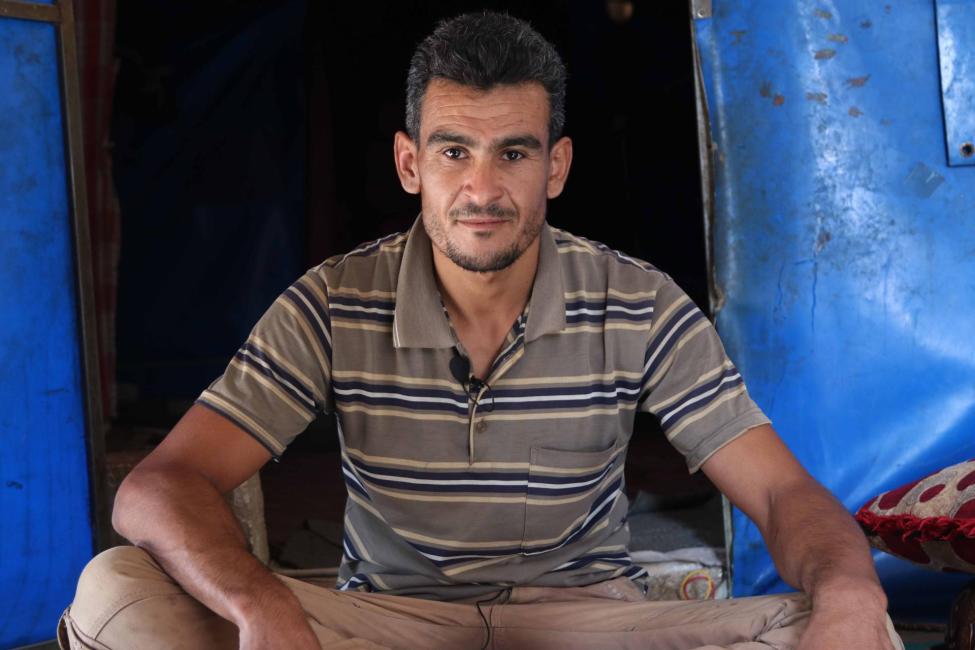-
Who we are
WHO WE AREIOM is the leading inter-governmental organization promoting humane and orderly migration for the benefit of all, with presence in over 100 countries. IOM has been active in the Middle East and North Africa from the early 1980s.
About
About
IOM Global
IOM Global
-
Our Work
Our WorkAs the leading inter-governmental organization promoting since 1951 humane and orderly migration, IOM plays a key role to support the achievement of the 2030 Agenda through different areas of intervention that connect both humanitarian assistance and sustainable development. Across the Middle East and North Africa region, IOM supports States in realizing their national priorities and in fulfilling their international commitments in the areas of migration, displacement and mobility.
Cross-cutting (Global)
Cross-cutting (Global)
- Where we work
- Take Action
- Data and Resources
- 2030 Agenda
Syria/Türkiye – For Abeer and millions of Syrians, life turned upside down when the war began in Syria more than a decade ago. Then, last year's earthquakes destroyed what little remained.
Abeer, her husband and their six children fled their home when heavy bombing engulfed her hometown of Ram Hamdan.
Like many internally displaced Syrians, both she and her husband soon fell out of work. A hairdresser by profession, Abeer had to close her shop. Eventually, they found jobs in agriculture. The income was meagre, but they could start rebuilding their lives, she thought.
Until 6 February 2023 came.
“When the first earthquake occurred, I woke my family up and we ran outside. It was raining, there was lighting and thunder,” Abeer describes that tragic early morning. “We stayed outside for so long, because our house was badly damaged. There were many large cracks. We were afraid the roof would fall on our heads.”
Needs soar after the earthquakes
The earthquakes last February caused widespread destruction, claiming the lives of at least 8,400 in Syria and displacing an estimated 2.9 million people.
In a country already devastated by a conflict that has raged for over a decade, many more lost their homes and livelihoods. Now living in one of the dozens of camps in Northwest Syria, Abeer wondered how she could ever start over.
She then heard about a cash-for-work programme, supported by the International Organization for Migration (IOM), which would offer her the kickstart she needed.
“I heard about the opportunity to earn some income through an olive harvesting activity. I went to register, and thankfully I was accepted. It lasted 20 days, and we received USD 6 per day,” explains Abeer, who participated in two rounds of the activity.
Although not enough to solve all challenges Abeer and other participants faced, the programme offered a respite. “So many of us lost our homes. This really helped us during the winter season, as we needed to buy food, supplies and heating materials.”
In 2023, IOM provided cash-for-work opportunities to 2,652 individuals. The initiatives are designed to facilitate community recovery, such as debris removal, cleaning, and rehabilitation of roads and public facilities.
Cash vouchers: a lifeline
Mahmood went through a similar journey. In 2011, he lost his farming business in the northern countryside of Hama and moved from one place to another, before finally settling in a camp near the Turkish border. “We constantly worried about being displaced again, but then a great tragedy befell us.”
Mahmood was at his workplace when the earthquake struck. Attempting to make contact with his family for hours, he eventually learned that his two daughters, mother and brother perished under the rubble. His brother, a pharmacist, had heavily supported him with his daily expenses. “After his loss, we struggled even more to meet our needs.”
Mahmood benefitted from an IOM-supported e-voucher programme, through which recipients are provided cards to purchase supplies at selected vendors. “We could buy various food and cleaning items worth USD 75. It lifted a large burden off our shoulders.”
Ahmed benefitted from the same programme. Slowly rebuilding his life with a new job in construction, the earthquakes meant he had to ask for food from his neighbours.
Mahmood and Ahmed were among 13,000 Syrians who benefitted from up to eight rounds of the e-voucher programme in 2023.
Dreaming of peace
One year after the earthquakes, IOM is focusing on supporting long-term recovery.
“Our programmes are designed to address immediate needs and strengthen resilience, while empowering people with the tools to rebuild their lives,” explains Lance Bonneau, IOM Head of Sub-Office in Gaziantep, from where IOM has delivered cross-border aid into Northwest Syria since 2014. “Sustained support from the international community is critical.”
Although many received cash and livelihoods assistance this past year, needs remain high. Funding shortfalls risk further deteriorating people's living conditions.
“There are many families who still need support in order to survive,” says Ahmed.
Others like Abeer hope to save money in order to move back home: “I hope my family and I can find stable work, so that we can eventually restore our house,” she says.
With the impacts of the earthquakes still lingering, conflict rages on with no end in sight. More than anything, Syrians dream of peace.
As Mahmoud says, “We just wish for dignity and freedom. We want to go back to our jobs and our lives before the earthquakes, before the war.”
IOM’s early recovery, livelihoods and food security programmes in Northwest Syria are funded by the Governments of France, Germany and the Syria Cross-Border Humanitarian Fund.
Written by Miko Alazas, IOM Türkiye Media and Communications Officer


